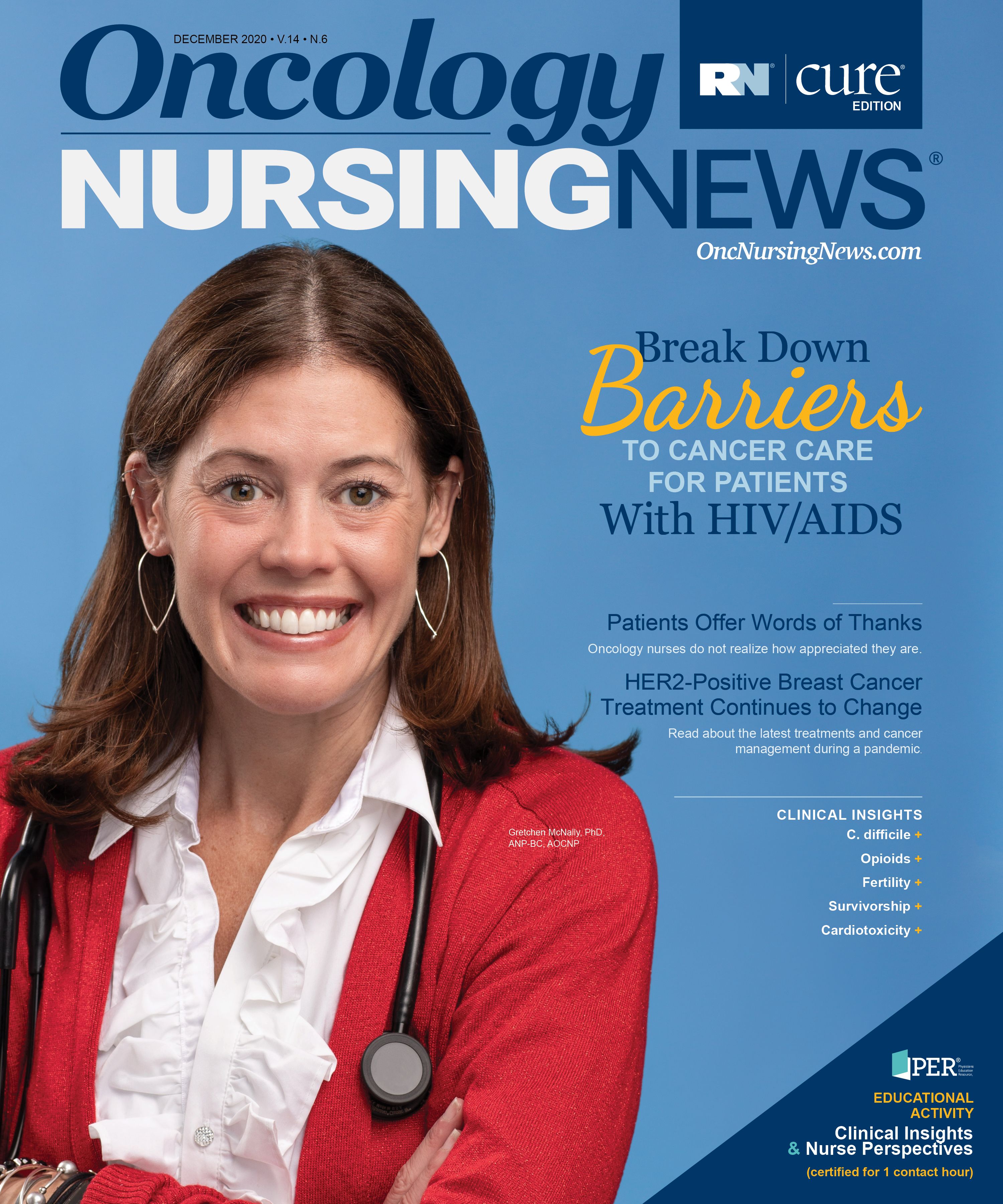Oncology Nursing Practice in 2020: The Challenges and Opportunities of the COVID-19 Pandemic
Early on, oncology nurses knew that cancer wasn’t going to stop for COVID-19, and so neither could they.
January 2020 marked the beginning of the World Health Organization’s “Year of the Nurse and Midwife,” commemorating the 200th birthday of Florence Nightingale, founder of modern nursing.1 Professionals around the globe planned conferences and recognition events to celebrate the nursing profession and Nightingale’s historic accomplishments reducing disease transmission in field hospitals in Crimea.2
However, by late February, the growing incidence of the coronavirus 2019 (COVID-19) in China and outbreaks in the United States began to turn attention away from these planned festivities. Seemingly overnight, a massive response to the deadly virus was mobilized by the health care community, with the implementation of lockdowns, remote work, mandatory masking, and countless policy, procedural, and operational changes. What irony, that in a year planned for the global celebration of a 19th-century pioneer in the study of disease transmission and nursing, society instead had to focus all efforts on the containment of a deadly disease spreading rapidly across the globe.
By late spring, the world was in a full global COVID-19 pandemic with the end nowhere in sight. Public health infrastructures proved to be inadequate to support hospitals and health care workers, and without a coordinated national approach, the local level established efforts to control the virus at the local level. Many health care institutions struggled to procure needed personal protective equipment (PPE), cleaning supplies, therapeutics, and mechanical ventilators to care for critically ill patients with COVID-19.
Throughout this unprecedented time in society, oncology nurses have worked tirelessly to provide uninterrupted, life-saving cancer care to patients in hospitals and outpatient settings. Early on, oncology nurses knew that cancer wasn’t going to stop for COVID-19, so neither could they. Along with continuing to provide cancer treatment, oncology nurses had the added challenge of protecting patients and each other from COVID-19 through strict isolation procedures and the use of PPE, which has its origins in Nightingale’s work.3 They acquired new skills to care for immunocompromised patients in special COVID-19 intensive care units. Because of strict no-visitor policies, oncology nurses also became liaisons between patients and their loved ones, holding phones to patients’ ears, and providing daily updates to families at home. Too often, they have been the only human beings in the room at the end of life to assure their patients do not die alone.
In other settings, oncology nurse navigators moved their practice remotely, caring for patients at home through telehealth visits.
Clinical trial nurses innovated standard operations such as shipping investigational drugs to patients’ homes to enable them to safely remain on study. Clinical teams developed mechanisms for virtual huddles to coordinate and assure delivery of the same standard of care excellence previously provided in person. Many of these innovations have proven successful and are well received by patients and families. Efforts are underway to design and test care models that will expand the availability of other cancer services at home. When effective vaccines are available and the pandemic recedes from its current place of prominence, some of these new models will certainly become best practices in cancer care.
Forever influenced by the past 9 months, personal and professional lives have undoubtedly taken an emotional toll. As winter settles in and people prepare for a potential next COVID-19 surge, people must focus on supporting one another and the colleagues who join in this work. Oncology nurses need to find ways to renew and sustain themselves while continuing to care for patients. The heroic efforts of oncology nurses during the pandemic have been frequently highlighted in the media. This is ironic because the commitment to care for patients and families is oncology nurses’ true north, no matter what. It is what they do every day.
In a recent interview on NBC’s Today Show, Kevin Browne, DNP, RN, CNS, CCRN, deputy chief nurse at Memorial Sloan Kettering Cancer Center said it best. “Thank God there are people (nurses) like this in the world who chose these professions—to want to run toward a pandemic, rather than run away from it,” he said.4
May all nurses continue to run toward their patients during this time, fortified by self-care and resiliency-building practices to sustain them.
References
- Year of the Nurse and the Midwife 2020. World Health Organization. Accessed October 22, 2020. https://www.who.int/news-room/campaigns/year-of-the-nurse-and-the-midwife-2020
- Dossey BM. Florence Nightingale; Mystic, Visionary, Healer. Springhouse Corporation; 2000.
- Nightingale F. Notes on Nursing: What It Is and What It Is Not. Appleton and Company; 1859. Nurse manager reunites with heroic team who treated him for COVID-19. Today. October 8, 2020. Accessed October 22, 2020. https://www.today.com/video/nurse-manager-reunites-with-heroic-team-who-treated-him-for-covid-19-93423173664

Innovative Program Reduces Nurse Turnover and Fosters Development
Published: September 12th 2024 | Updated: September 12th 2024The US Oncology Network (The Network) has developed one of the most comprehensive programs in the nation to support the professional development and retention of new oncology nurses.


